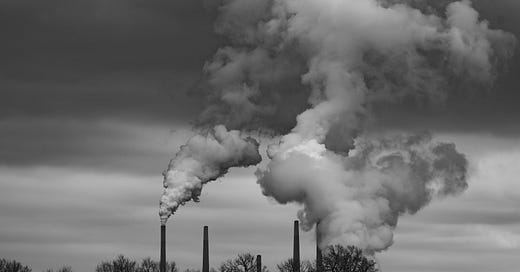Last week, Rachel Maddow posed a question that now confronts the nation with sobering immediacy: What will we allow Donald Trump to do? The answer carries profound implications. Trump’s intentions are neither ambiguous nor newly emergent. He has undertaken a systematic campaign to consolidate executive power, suppress dissent, and dismantle the institutional architecture of American democracy.
Among the earliest and most revealing targets of this authoritarian agenda is environmental protection. In just the opening months of Trump’s second term, the administration has revived and escalated efforts to dismantle bedrock environmental safeguards. This week, U.S. Environmental Protection Agency (EPA) proposed to rescind all federal limits on greenhouse gas emissions from fossil fuel-fired power plants. In tandem, it has advanced a repeal of the agency’s most recent update to the Mercury and Air Toxics Standards (MATS), regulations that are critical to limiting hazardous emissions such as mercury, arsenic, and other neurotoxicants from coal-fired power plants.
These actions are not merely deregulatory; they are existential. They endanger public health, compromise environmental stability, and further entrench corporate impunity. The consequences are not hypothetical. Scientific projections estimate that repealing or weakening just a fraction of EPA’s existing air rules could result in as many as 10,000 premature deaths each year, primarily due to increased exposure to fine particulate matter (PM2.5), mercury, and ground-level ozone. One rule on soot pollution alone was expected to save up to 4,500 lives annually and prevent 800,000 asthma attacks. Vulnerable populations — children, the elderly, and those with chronic respiratory conditions — will bear the brunt of this regulatory abandonment.
This is environmental policy reconfigured as an instrument of authoritarian control.
Let us be clear: environmental protection is not peripheral to democracy. It is central. A functioning system of environmental governance depends on transparency, independent expertise, and regulatory decision-making rooted in the public interest. These are precisely the mechanisms autocratic regimes seek to dismantle.
The Trump administration’s environmental agenda is not an isolated policy orientation. It is a strategic facet of a broader campaign to erode democratic accountability. What is at stake is not merely environmental degradation but the hollowing out of democratic legitimacy.
The economic rationale is equally indefensible. EPA’s own prior analyses projected that the rollback of just five major air and water protections jeopardizes over $200 billion annually in net public benefits. Rescinding these protections puts at risk $275 billion in annual health-related savings, including avoided hospitalizations, reduced chronic illness, and fewer missed workdays. Clean air does not inhibit economic growth; it sustains it. It drives workforce productivity, attracts local investment, and reduces public health expenditures. Regulatory protections are not economic burdens; they are essential public health investments.
The historical precedents are sobering. From Nazi Germany’s extraction of natural resources to fuel imperial expansion, to the Soviet Union’s ecological devastation in the name of centralized industrialization, authoritarian regimes have repeatedly subordinated environmental stewardship to state control. More recently, leaders such as Jair Bolsonaro in Brazil and Viktor Orbán in Hungary deliberately targeted environmental institutions early in their campaigns against democratic norms. The United States is, once again, treading a perilously familiar path.
Yet, resistance is both possible and essential. Legal challenges, public mobilization, and the work of civil society have already constrained many of the Trump administration’s unlawful and scientifically baseless actions. The courts have proven critical in upholding statutory protections. Public health experts and environmental advocates have exposed procedural violations and regulatory malfeasance. Equally powerful has been the sustained engagement of ordinary citizens — in town halls, at public hearings, and in the streets— demanding accountability and defending their communities against harm. This broad-based defense of democratic rulemaking offers both precedent and a roadmap for the battles ahead.
The Environmental Protection Network and our allies remain committed to this fight.
We will oppose the repeal of MATS.
We will challenge the unlawful abandonment of carbon standards for power plants.
And, we will continue to assert that environmental protection is not a partisan issue; it is a constitutional obligation rooted in the public’s right to health, safety, and scientific integrity.
Trump’s second term is testing the resilience of our institutions and the resolve of our civil society. We understand what is at stake. We recognize that acquiescence enables autocracy. And, we affirm that environmental protection is not simply a matter of policy. It is an act of democratic defense.
The question, as Maddow posed, is what we will allow. Our answer must be unequivocal: We will not permit environmental collapse to serve as the scaffolding for authoritarian power.
We will resist — methodically, legally, and unapologetically — because the defense of democracy and the defense of the environment are not separate imperatives. They are one and the same.




